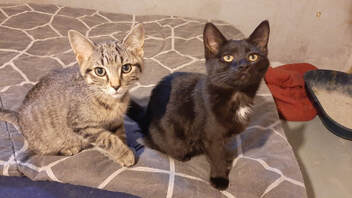 **I am NOT a veterinary professional, this is all my own opinion based on my own experience and research. I will include further resources below** Over the years, we've lost several kitties and been made aware of several adopted kitties who have passed away (likely) from something called FIP. Feline Infectious Peritonitis, or FIP can happen when a virus that almost all kitties (especially in a rescue/shelter setting) are exposed to, mutates in a largely unknown way, and they are not able to fight it off. There are different types of FIP and it cannot currently be accurately diagnosed. However, there are warning signs, and tests that can be run that give 'clues' that kitties symptoms may be stemming from FIP, but no clear cut test. In the past, if a kitty was suspected of having FIP, typically they were humanely euthanized... FIP was a death sentence. BUT, there is some good news. In February 2019, a study was published by UC Davis (General Feline Infectious Peritonitis Resources) regarding the efficacy of a new drug against FIP. This was a BIG deal, and the study showed GREAT results - showing that FIP may in fact be treatable. 25 of the 31 cats studied were successfully treated. However, this drug has NOT approved or made widely available for use... yet! But it has been shown over and over again to be effective in kitties 'diagnosed' with FIP. It is also extremely expensive. Approximately 1 week's worth of injections is almost $100. With at least 12 weeks of injections and regular vet visits and blood work and other testing, it's not an easy process... but it is a HUGE leap for FIP kitties - FIP may no longer be the death sentence it has been for so long. In 2020, we noticed one of our foster kittens, Stitch, was acting funny, not gaining weight like he should, but had a BIG BIG belly. It was FULL of fluid, a telltale sign of FIP. We worked with our vets to do bloodwork and diagnostic testing and he was 'diagnosed' with FIP. Typically at this point, kitties are not eating, have no energy, are lethargic, and you can tell they don't feel good. Typically they don't have long. Stitch though was still semi-energetic, still eating and drinking, and we thought he would be a good candidate to try this new treatment. TO BE CLEAR - this was NOT prescribed or provided by our vet. We reached out to some experienced contacts, discussed the process with Stitch's foster at length and decided to try, with the support of our vet. Stitch received an injection for 84 days and was very closely monitored to ensure that he moved in the right direction throughout the process. Stitch made it through all his awful injections, and 84 more days of close observation, and was considered 'cured' in 2021. He's now in his forever home, he got adopted with his sister, who kept him company through his treatment, Lilo! If you or your vet suspect a kitty might have FIP - there are options!! Don't give up! Further Reading: - Researchers study crowdsourced cure for deadly cat disease (Veterinary Information Network News Service) - Unlicensed GS-441524-Like Antiviral Therapy Can Be Effective for at-Home Treatment of Feline Infectious Peritonitis (MDPI Journal, Animals) - Efficacy and safety of the nucleoside analog GS-441524 for treatment of cats with naturally occurring feline infectious peritonitis (Journal of Feline Medicine and Surgery) - Confusion besets first legal FIP treatment in US (Veterinary Information Network News Service)
0 Comments
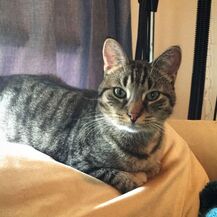 One of our amazing fosters has been working with one of our shy cats, Yeti. Yeti Belly is famously hard to catch and get in a carrier (as are lots of kitties) but next week is moving day for foster mama! This method is HIGHLY recommended if you have a kitty who is afraid of the carrier (or you picking them up!) - in case of emergency, moving or going to the vet for a checkup - check it out!
Then, Yeti Belly went into his carrier, ate his snack and his foster mama closed the door. He is ready for the big move!!
A lot of people think that cat's can't be 'trained' or avoid taking their kitty to the vet for regular checkups because they don't like the carrier... regular vet visits are SO important for kitties, especially as they get older, because they are really good at hiding when they don't feel well. Using this 'fear free' method - you can get even the most elusive kitty comfortable with going into their carrier on their own, and be prepared in case of emergency! Thank you to Yeti's foster mama for working with him and helping him be his very best kitty self! Last week, we were contacted about a tiny orphan kitten whos mama had him (and another sibling, already deceased) and ran away. Mamas often know when something is wrong, or they can't take care of their babies, and he was rushed to a bottle baby foster. He was 2.6oz, about half the weight of a 'normal' newborn kitten - he was cold, and hungry. He survived 3 days. Whenever we get bottle babies, we always work with finders to try and locate mama and any other babies she may have - there was no sign of mama until today. She was found... dead. I'm heartbroken, I'm angry, I'm sad.
She didn't deserve this. Apparently she was old and spent her life scrounging for food and having litter after litter of babies and now she's dead. Imagine your pets having this life. This is what happens when people don't take responsibility. Maybe she was someone's pet, maybe not, but it doesn't matter. She deserved better. If you FEED community cats, GET THEM FIXED. Contact us MEOW for assistance... **not dropping everything we're doing to solve your problems for you on our own, but ASSISTANCE** We can HELP you: - borrow a humane live trap, talk you through how to set it and the best ways to trap a cat in it. Don't let not knowing/having equipment be an excuse. - scan them for a microchip and help get them back to their owners if they ARE microchipped. Don't let 'possibly' being owned be an excuse. - schedule an appointment to get them spayed and neutered, help coordinate transport, if available, and even provide funding for it. Don't let cost or transportation be an excuse. - talk you through release and proper care of community cats if they're not friendly. TNR works - it's the only way to end this cycle! Don't let them being 'unsocialized' be an excuse. - help find rescue placement/rehoming if they're friendly. YOU can help, don't let the underfunding/overcrowding of rescues be an excuse. NO excuses. Help us help them. If you feed em, FIX em. Take responsibility. YOU CAN HELP. End the cycle. 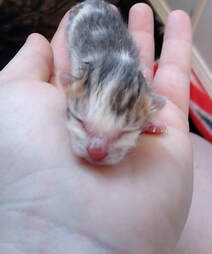 What to do (and NOT do) if you find tiny kittens this kitten season: - First and foremost - DON'T pick them up! Mom may be away hunting or looking for a better place to hide them! They regularly leave their babies for a few hours at at time - more and more as they get older. If the babies are quiet and warm, mama was probably just there. And mamas are smart, they won't come near you if they sense danger, so leave them be! Kittens have a MUCH better chance of survival with their mama. IT IS NOT ALWAYS AN EMERGENCY! (Leave Them Be! - Alley Cat Allies) - Put out a bowl of water and food and WATCH for mama somewhere she won't see you (like inside a car or inside through a window). IF after a few hours there is no sign of mama, or babies start to cry or feel cold to the touch, THEN it's time to intervene. If mama is spotted, work with a local rescue or TNR group (like Animal's Best Friend here in Kalamazoo!) to trap her AND the kittens. Again, kittens have a MUCH higher chance of survival WITH their mama - and mama can get spayed so she won't have to have babies ever again!
- Kittens need to be kept WARM - you can use a heating pad, rice sock/warmer or a hot water bottle (never directly ON the kittens - use a towel or blanket in between). Wherever they are kept, make sure there is a non-heated area they can move to if they become too warm. Typically, kittens will huddle up together for warmth and comfort. (Heat Sources for Orphaned Kittens - Kitten Lady) - Kittens need to eat every 6 hours MINIMUM - but don't feed them if you don't know what you're doing!! NEVER ever feed a kitten (or cat) cow's milk, or even water. This is the time to call in reinforcements! Reach out to a rescue organization to see if they have someone who can take on bottle babies. - If the kittens are older (eyes open at about 14 days, they learn to walk around 3-4 weeks and they are typically able to walk around and start eating on their own around 4-6 weeks) it's time to trap! The only way to END cat overpopulation and stop finding kittens like this is to SPAY AND NEUTER!! This is why it's especially important to get mama too - so that they don't just keep reproducing! (How Old is That Kitten? - Alley Cat Allies) Soon, shelters will be OVERRUN with kittens - 'kitten season' is typically in the summer months when cats are reproducing at an alarming rate and there just aren't enough homes for them all. Help us help them by taking the appropriate steps if you find kittens this summer! Make sure to SPAY AND NEUTER your pets and help reduce the overpopulation in our kitty community! Further reading and resources: - What To Do (and NOT do) If You Find a Newborn Kitten (Animal Alliance NYC) - What to Do When You Find Stray Kittens (Central California SPCA) - You Found a Stray Kitten - Here's What To Do (Catster) - Stop Kidnapping Kittens (The Animal Foundation) Responsible dog owners know - dogs should be tested and kept on heartworm prevention year round. "There are treatments available for dogs with heartworm, but prevention is the wisest approach" (AKC, heartworm in dogs)
But did you know - cats can get heartworm too!? This mosquito borne disease can affect dogs, cats, ferrets and other mammals including wolves, coyotes and foxes. We do a snap blood test on all our new kitties and one of our new kitties, Molly, tested positive for Heartworm this week. "Heartworm disease in cats is very different from heartworm disease in dogs. The cat is an atypical host for heartworms, and most worms in cats do not survive to the adult stage. Cats with adult heartworms typically have just one to three worms, and many cats affected by heartworms have no adult worms. While this means heartworm disease often goes undiagnosed in cats, it’s important to understand that even immature worms cause real damage in the form of a condition known as heartworm associated respiratory disease (HARD). Moreover, the medication used to treat heartworm infections in dogs cannot be used in cats, so prevention is the only means of protecting cats from the effects of heartworm disease." (American Heartworm Society) Unfortunately, there is no approved treatment for heartworm in cats, so there is nothing we can do to treat it at this point. The vet told us what to look out for, and if Molly is in any obvious distress to call them right away! However, this does not mean Molly can't find a forever home and live a normal life! We do not know what will happen, but we do know that we will do the best we can for her and educate others to the risks and preventative measures for heartworm in cats! Further Reading & Resources: American Heartworm Society - Heartworm in Cats One thing we pride ourselves on at Kzoo Cat Cafe and Rescue is striving to find the best fit for every single one of the kitties who comes through our doors. Since potential adopters are able to spend time with them and get to know them in a comfortable environment, as well as our staff, fosters and volunteers getting to know them and their personalities while they are with us - we use our best judgement in assessing if a home is a good fit for a particular cafe kitty, or kitties!
As kitten season comes around, we will have lots and lots more cute cuddly kittens looking for homes... but did you know, most rescues will not adopt out single kittens on their own!? It's because of Single Kitten Syndrome Single kitten syndrome is the idea that young kittens, when raised with other young kittens and cats and then adopted into a home by themselves, can become aggressive, anxious, stressed, and even develop behavioral issues like inappropriate chewing/scratching and inappropriately using the litterbox. Young kittens learn appropriate social behaviors from each other! Even if you never ever leave your house, as much social interaction as you can give your kitten, there are still social needs they require from other cats. When kittens are growing up together, they learn to play with each other and learn that biting and scratching hurts! Without an appropriate playmate, a cute kitten 'playing' with your hand or arm can become... not so cute real fast. They also crave social interaction within their species, which is why you'll see kittens that are bonded groom each other, play together, and curl up and nap together - and most of our kittens grow up in foster homes with other kittens (related or not) and we like to see them go to their forever homes with another kitten they are already comfortable and familiar with, if not to a home where there are already buddies that want a new fun kitty friend to play with. There are of course some exceptions (we don't need to hear the 'but I adopted a kitten by themselves and they were fine' stories...) but that's why we do our adoptions the way we do! We take EACH application for EACH kitty on a case by case basis to evaluate the fit before sending anyone into a home. If a kitten was raised by a bottle baby foster with their siblings, and 6 other bottle babies - they're not going to be adopted out by themselves. People can get upset with us and leave bad google reviews, and send judgemental emails, as always, but our policies will not change. We are in this for the best interest of our kitties, and nothing else. If you are thinking about adopting a kitten this season, consider a pair! They'll always have a friend to play with, cuddle with and won't feel bored and alone. Plus, you're saving TWO more lives by allowing us to take in two more kittens in their place. If you want to adopt, but aren't interested in a pair, consider some of the amazing older kitties we have at the cafe! There are lots of kitties who would LOVE to be an only child and have all their human's attention to themselves!! As always - feel free to chat with us when you visit about who might be the right fit for your fur family! Further Reading:
Do we have hypoallergenic cats??
We get this question a LOT! and NO, we don't - for a few reasons... First and foremost, hypoallergenic cats DON'T exist! Contrary to popular belief, cats that shed less are not less allergy inducing than other cats - allergies to cats come from their "saliva, skin, and urine" (https://pets.webmd.com/cats/features/do-hypoallergenic-cats-exist#1) - NOT their fur! Long haired, short haired, or even hairless cats are not any more or less allergen inducing than the other. Second, even if specific breeds of cats were less allergy inducing - we don't have any cats that are specific breeds - this is a rescue!! And we would never, EVER condone 'shopping' for a cat from a breeder. Breeding animals when so many are homeless and die every day is NEVER responsible. Period. #adoptdontshop HOWEVER, there are things you can do to reduce pet allergens in your home! There are special air filters, human allergy treatments (make sure it's the pet you're actually allergic to!), even a brand new cat food that may help reduce allergens in the home (https://www.purina.com/pro-plan/cats/liveclear-cat-allergen-reducing-food)!! Check out some of these additional resources and learn more about cat allergens (and your own allergies!) before you decide to adopt! 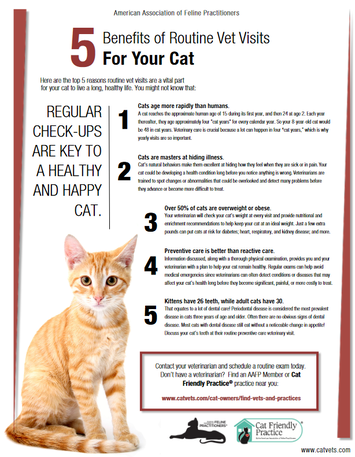 When is the last time your kitty visited the vet? This past year has been crazy for everyone, but did you know - kitties should always see the vet a MINIMUM of once a year for routine wellness exams, vaccinations and preventative care! That is why we require current, up to date records from the vet for any other animals in the home when adopting a new kitty friend. Kitties are VERY good at hiding when they don't feel good - the most common signs are behavior changes, changes in eating and drinking habits, and litter box use. The vet can also detect changes over time with regular visits and 'head to tail' examinations! If it's been over a year, or you're not sure when your kitty last visited the vet, give them a call MEOW! And be kind - our veterinary teams have been through a LOT in the last year and most are operating with minimal staff, doing 'curbside' visits to keep everyone safe, and doing their very best to help us take the best care of our kitty friends! Further resources and reading: - One of the main reasons people don't take their cat to the vet is because it's hard to get them in the carrier/ride in the car to the vet! You can use these and other ways (pheromone spray/wipes, top open carriers...) to reduce stress and get your kitty to the vet! Picture this: you have ONE toilet... possibly shared with a few others in your home... It gets flushed about once a week, and it's in the basement, in the dark, next to a big scary loud machine - sound good to you?? Would you feel comfortable going with that setup? Now picture this: you DON'T indeed feel comfortable with that setup - but nature calls!! What do you do?? Kitties going outside the litterbox is one of the TOP reasons for kitties being rehomed, euthanized, relinquished to shelters, or simply kicked out to fend on their own outside... when all they're doing is telling you SOMETHING IS WRONG HERE in the only way kitties know how. 1 - ALWAYS always bring your kitty to the vet for a checkup if they are having litter box issues! You have to rule out medical issues (urinary infection, pain associated with the litter box/litter (you'll see this a LOT in declawed cats!!!), or other medical issues causing them to avoid the box) before you can consider behavioral issues. Kitties are VERY good at hiding when they don't feel well - the #1 signs are inappropriate litter box use and unusual eating/drinking habits. 2 - Examine your litterbox setup - imagine that was YOUR potty area... how would you feel about going there? Is it private and quiet? Is it easy to get in/out of? Are there enough for everyone? Is it clean? If you aren't sure what your kitty is trying to tell you - they may not like the location, type or smell of their litterbox - try something new! Add another box with another type of litter in a different location and see if they prefer that one! Avoid things like scented litter (yuck - cat's don't need their potty area to smell like lavender, as much as humans may like it - that is something that is 1000% marketed to humans and completely unnecessary and potentially harmful for kitties), covered/too small boxes, noisy/busy locations and tall sided boxes (especially for our senior or declawed friends! DON'T get me started on 'potty training' your cat to use a toilet - this is a HUGE NO NO! 3 - do some research on kitty potty behavior - scent and marking are SO important to cats! Ever wonder why they like to scratch things? It's NOT because they like to ruin furniture. Why they bury their potty? Why they get the after potty zoomies sometimes? The best and most important thing we can do for our pets is to try and understand why they do what they do. Everything is an instinct - they don't pee on your clothes because they're a jerk... they're trying to TELL you something! Listen!! Soon we will be offering cat coaching services (www.kzoocatcafe.com/cat-coaching.html) for kitties with litterbox issues, other behavioral issues like counter surfing, scratching, aggression, introducing new pets, and for pet parents who just want their kitties to live their very best life! If this is something you might be interested in, email us at kzoocatcafe@gmail.com MEOW! Further Reading:
|
Photo from Bennilover

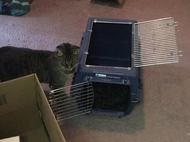
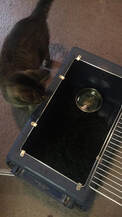
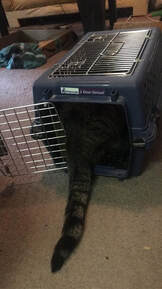
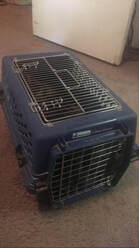
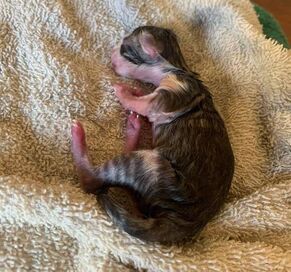
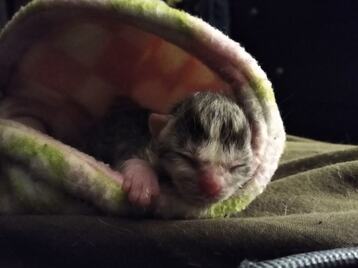
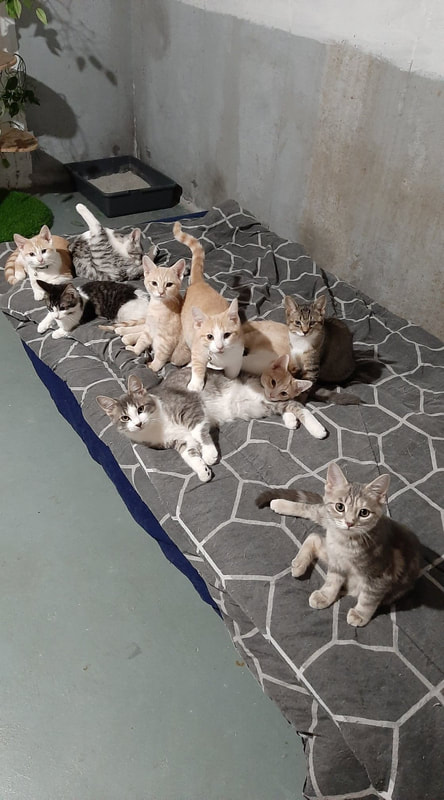
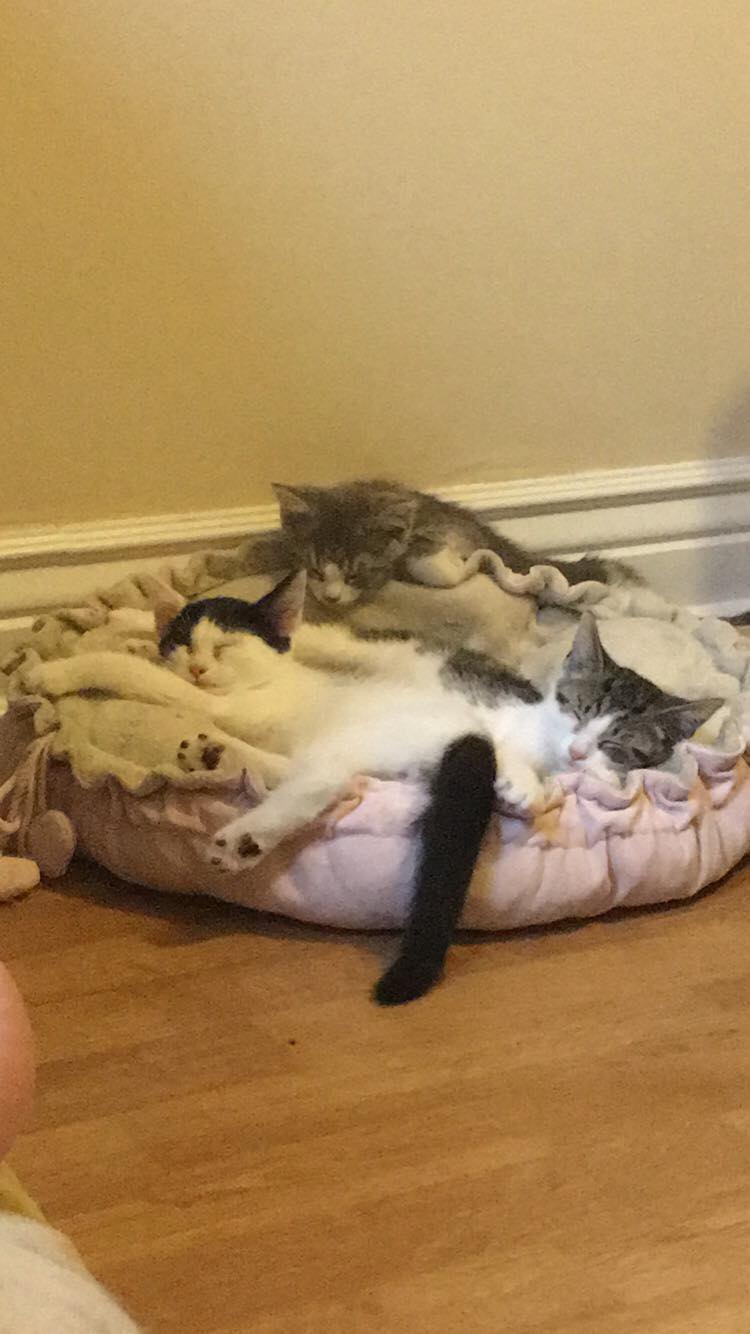
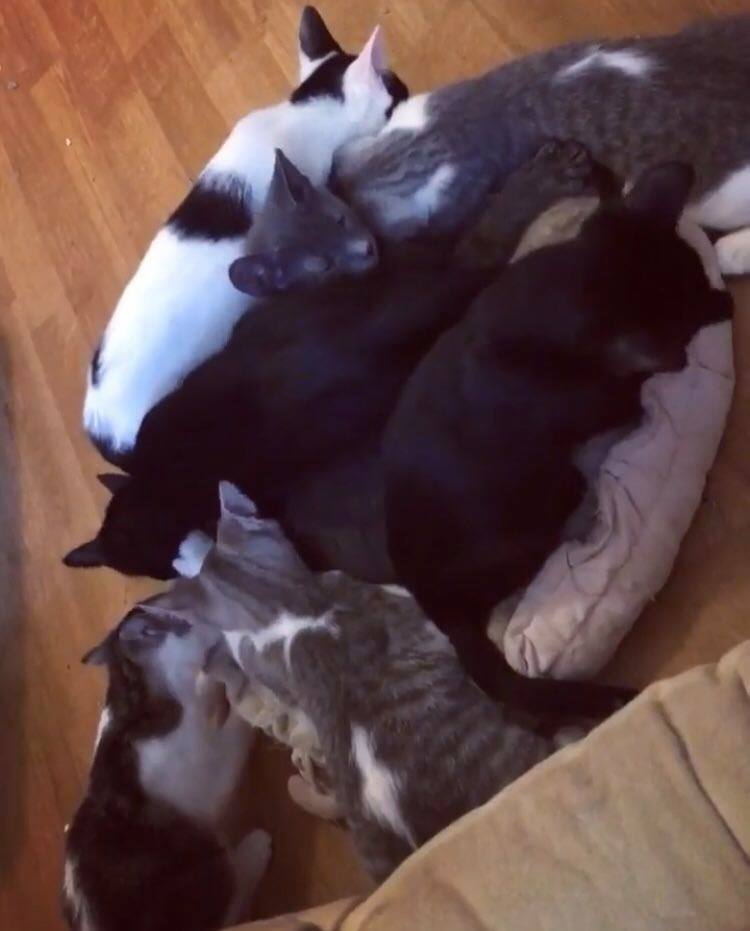
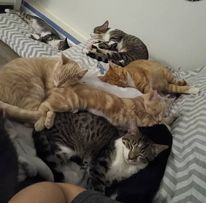
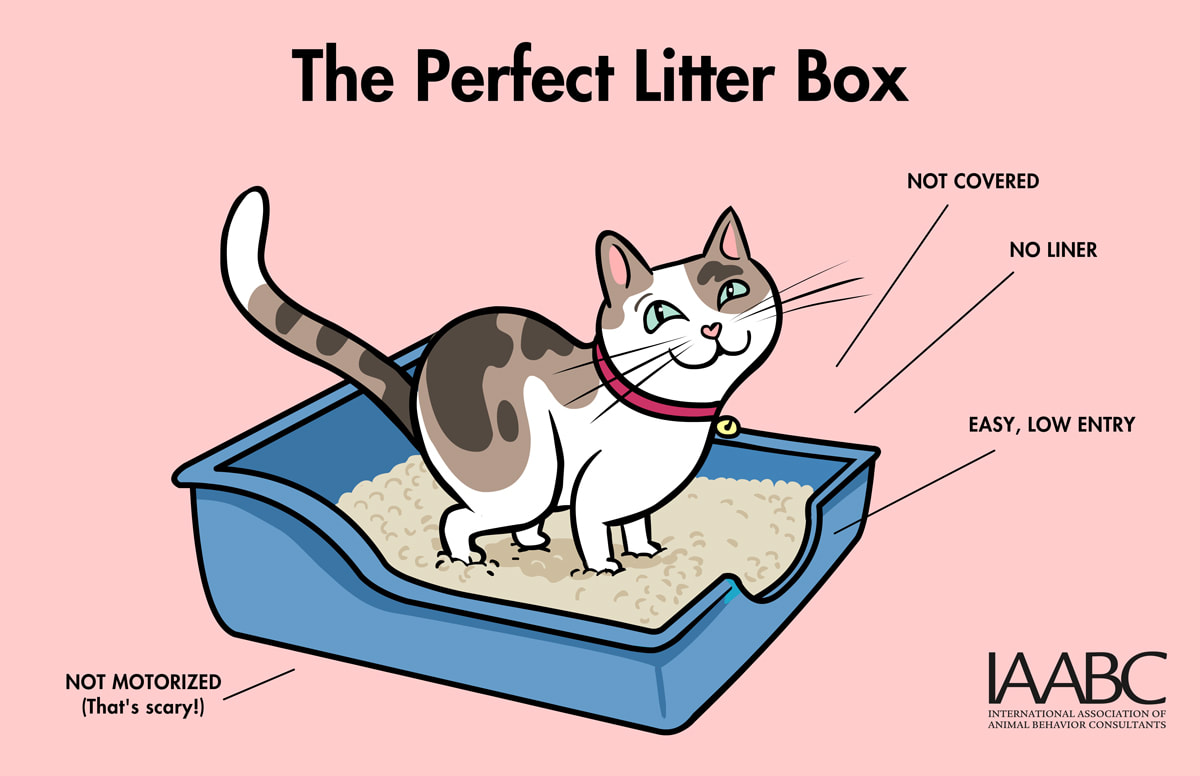
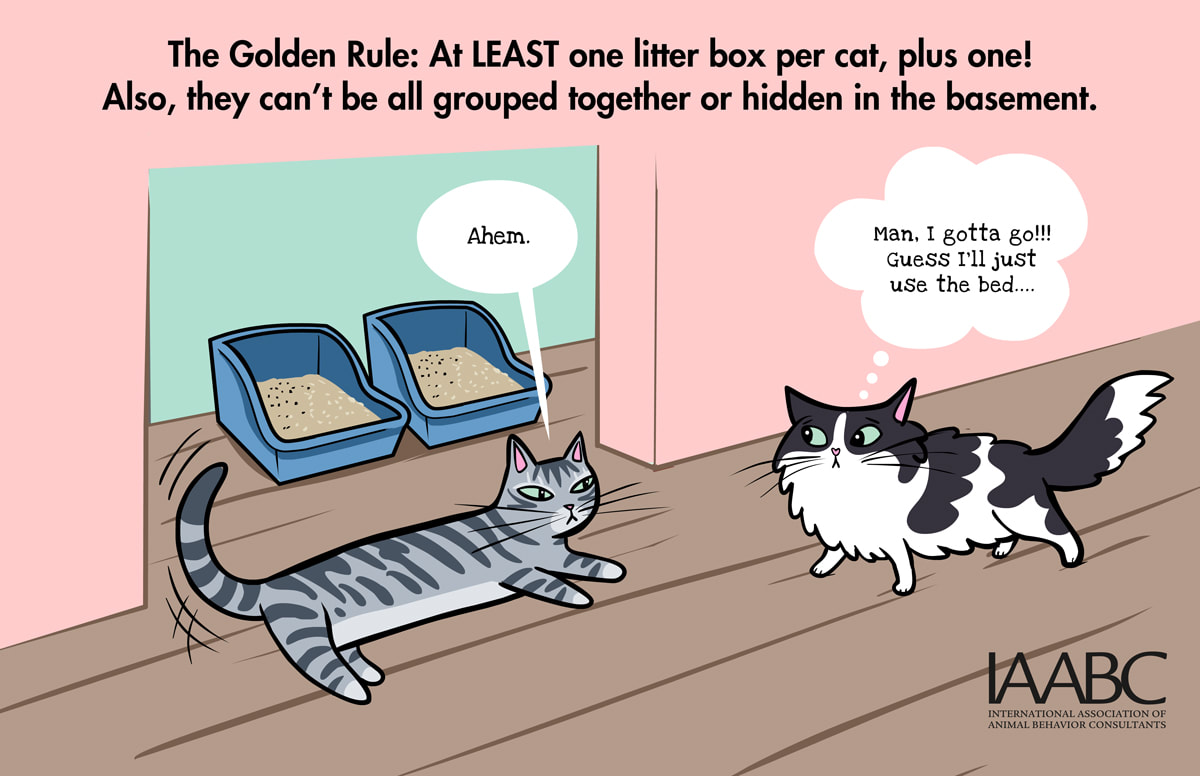
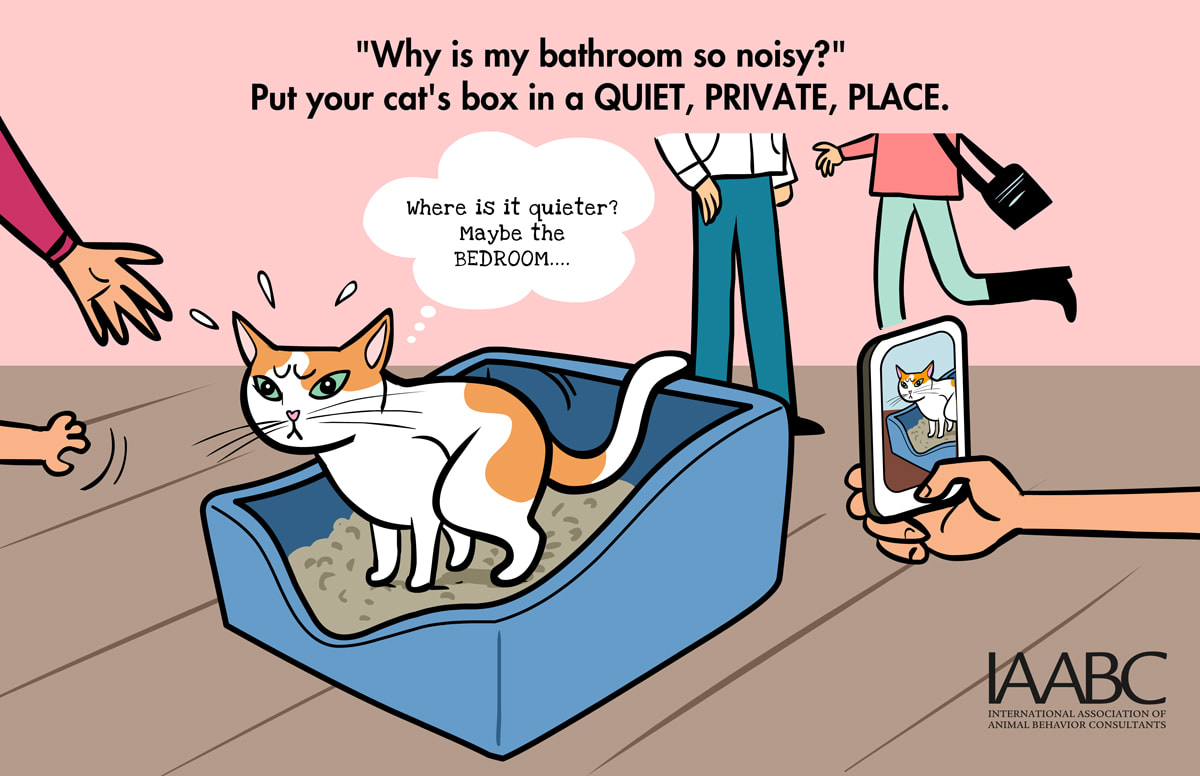
 RSS Feed
RSS Feed